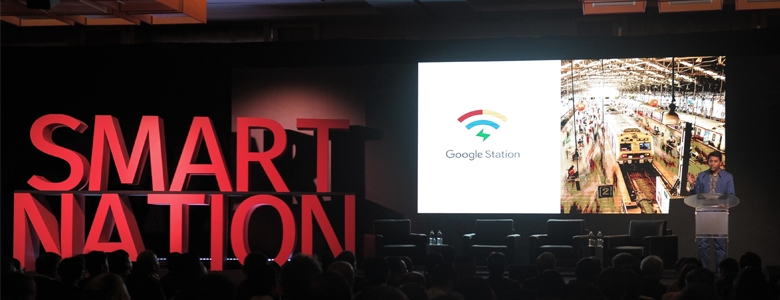What the next billion internet users want

TL:DR: A connected world presents a wealth of opportunities, says Mr Caesar Sengupta, vice president of Google’s Next Billion Users division. But the way people use the internet is changing, and increasingly, technology is expected to adapt to the needs and desires of humans. Artificial intelligence is thus needed to help machines learn human behaviour
Looking back at how technology has advanced over the past three decades, two things become apparent—disruption comes in waves, and humans have had to adapt.
“Every ten years or so, we see a major shift in technology. In the early 1980s, the digital revolution made computers a part of people’s lives and changed the way we work. Roughly a decade later, in the 1990s, the internet transformed how we think about finding information. Then in the mid-2000s, smartphones brought all that knowledge into our pockets,” said Mr Caesar Sengupta, vice president of Google’s Next Billion Users division.
Speaking at a keynote address at the Smart Nation Innovations Week Opening Symposium held on 5 June 2018, Mr Sengupta discussed the transformative power of technology and its ability to change lives, industries and even the future.
The power of connectedness
Across the world, the biggest and the fastest human migration ever known is happening today—the migration from offline to online.
“In the year 2000, about 360 million people were connected to the internet, and all of them had to be anchored to their desktops to get online. Last year, 3.6 billion people—that is almost half of the world—had internet access. This figure is set to increase to 5 billion in the next few years,” said Mr Sengupta.
“This means that a camel herder in the Gobi Desert today has better connectivity than any of us did 30 years back. And with an internet connection, they have access to more information than any Head of State did 20 years back,” he added. Furthermore, because physical and geographical borders mean little in cyberspace, marketplaces have opened up, paving the way for economic progress.
“Just imagine five billion people with the world’s information at their fingertips… five billion entrepreneurs, and at the same time, five billion customers,” he said.
A paradigm shift in expectations
Given the vast potential of an open and connected world, Google is seeking to realise this vision with its Next Billion Users initiative. Mr Sengupta leads Google’s push to develop products and features for—you guessed it—the next billion users who are coming online in developing countries such as India, Indonesia and Nigeria.
“Many people have the misconception that the next billion users are currently just sitting around waiting for Internet connection, but this is far from the truth,” said Mr Sengupta. “Many of [the next billion users] are in the middle class, living in rapidly growing economies, and they are buying smartphones and data plans.”
But the most important difference is that these new users are mobile-first, and often, mobile only, said Mr Sengupta. “They are introduced to the world of internet via the smartphone instead of a desktop, which makes their expectations of computing and the internet drastically different.”
This up-and-coming generation of users no longer views the World Wide Web as simply a source of information. They see it as a one-stop shop for news and entertainment, goods and services—and they want it anytime, anywhere. Moreover, “because they didn’t grow up typing on keyboards, they expect to access technology much more interactively. They don’t want to learn technology—they want technology to learn them, and that is where artificial intelligence (AI) comes in,” Mr Sengupta said.
The age of the intelligent machine is here
AI has made significant progress in recent years, and Google has been a key driver of that progress. The technology has improved to a point where it is beginning to be able to parse our language for meaning, recognise the content of our videos and even generate creative works from scratch. With these capabilities, AI can now help machines adapt to people, instead of the other way around, which has been the historical norm.
Mr Sengupta explained that the shift has been happening so seamlessly, people often don’t even realise that they are using AI. For example, “when they talk to their phones to search for information or ask for a translation,” they are relying on AI to achieve their goals.
Now that Asia has more smartphones than any other region in the world, it could be said that Asia is a hotbed for the creation and use of AI. Mr Sengupta noted that throughout history, new entrepreneurs, businesses and industries have been created by new technologies, “and today, we see a lot of that happening here in Asia.”
Clearly, in the eyes of a technologist like Mr Sengupta, disruption does not arouse fear, but optimism. “One of the most interesting things about the tech industry is that just when you think you understand it—everything changes, and new possibilities unfold,” he said.
https://www.tech.gov.sg/media/technews/what-the-next-billion-internet-users-want
